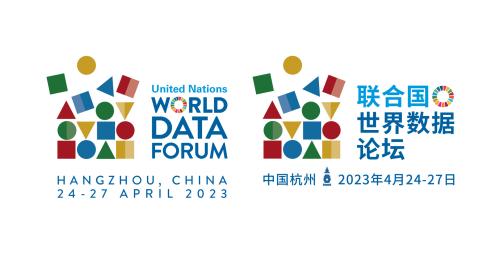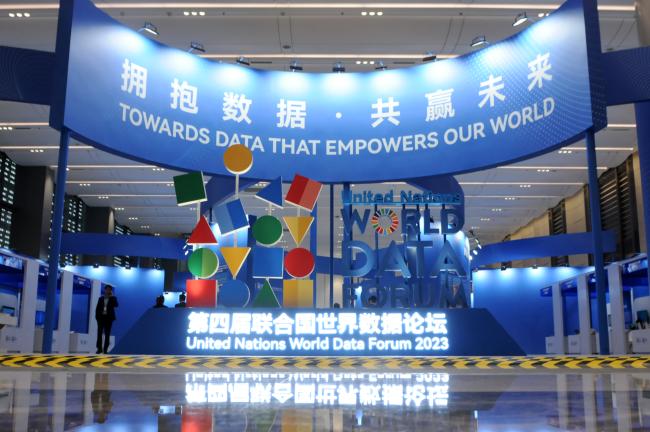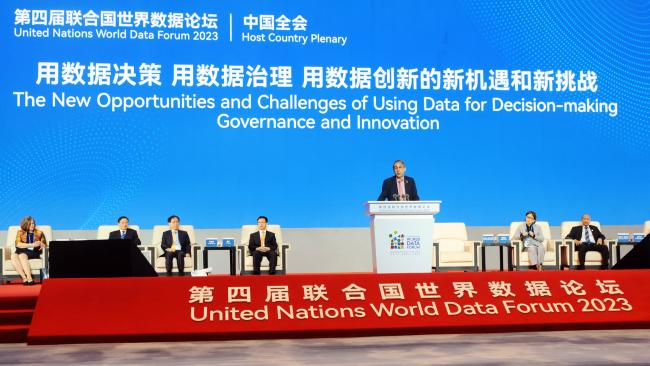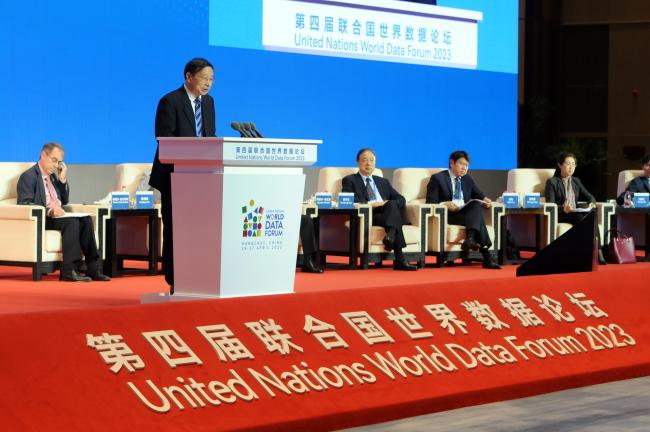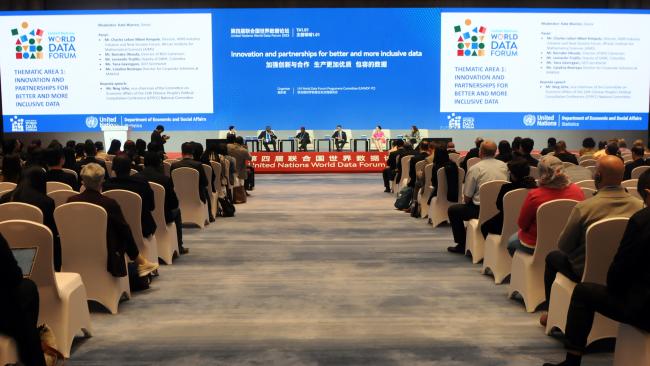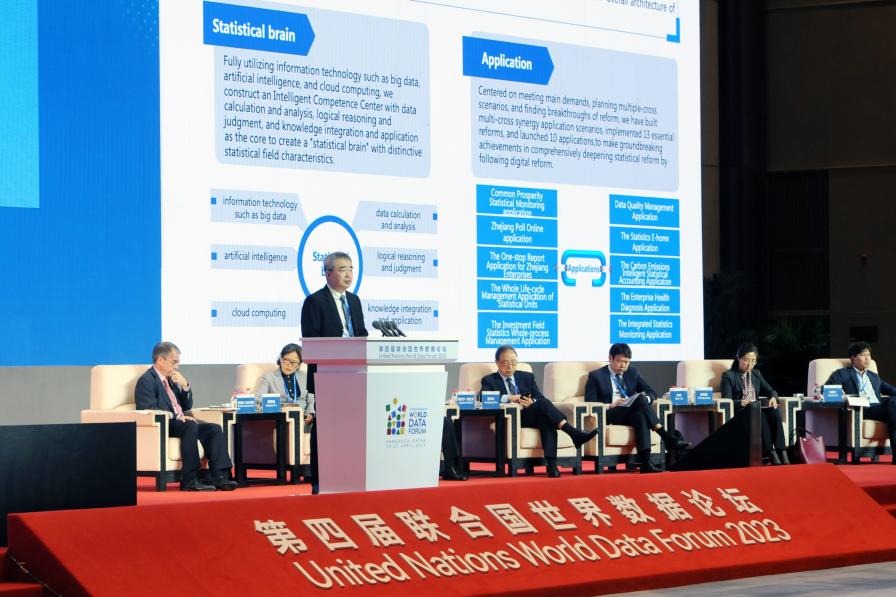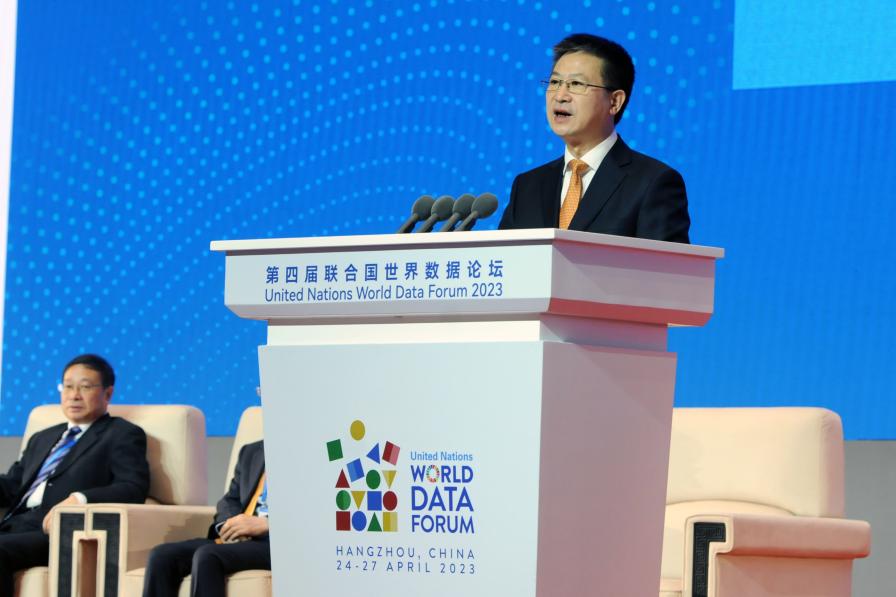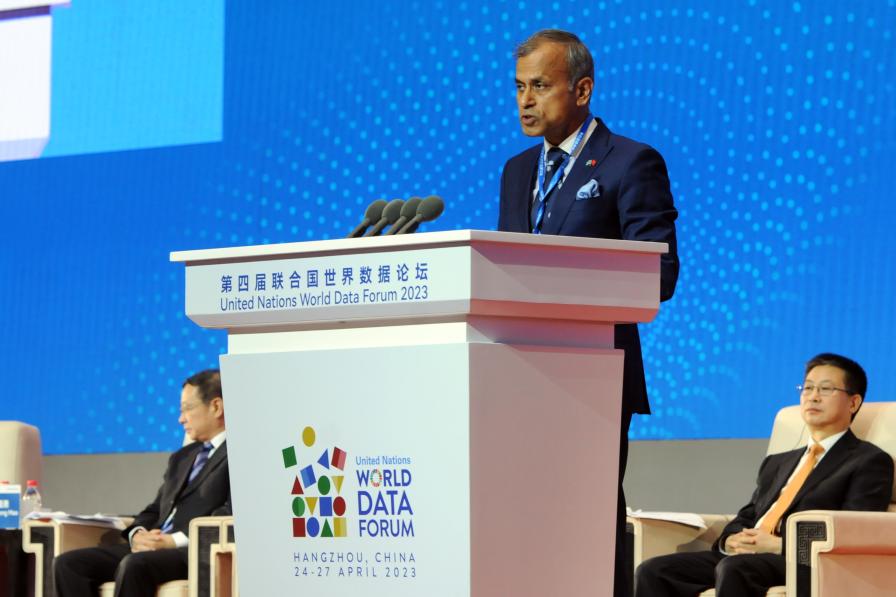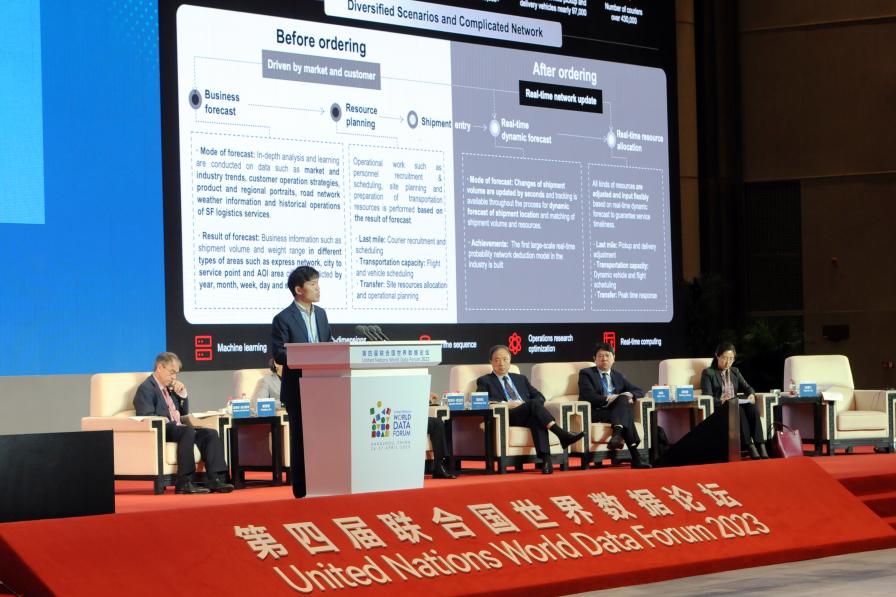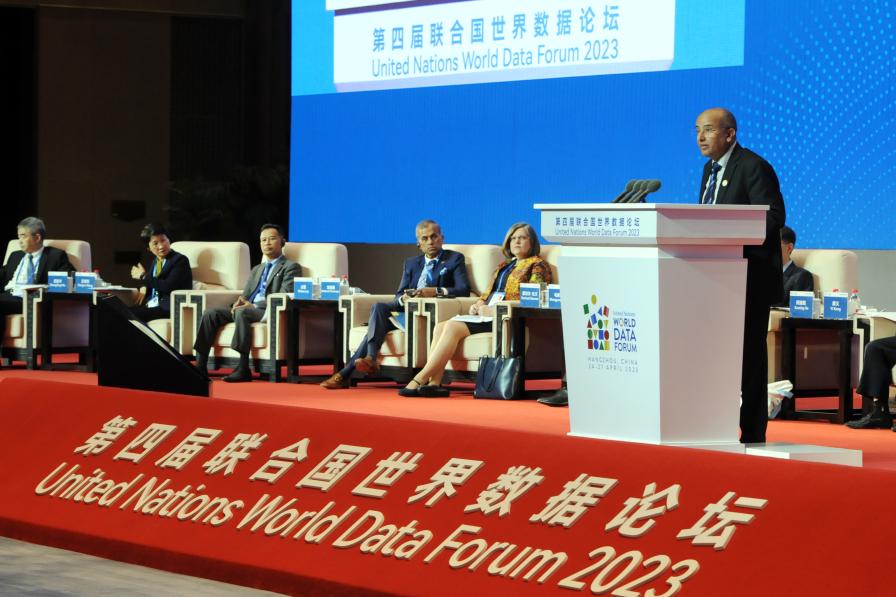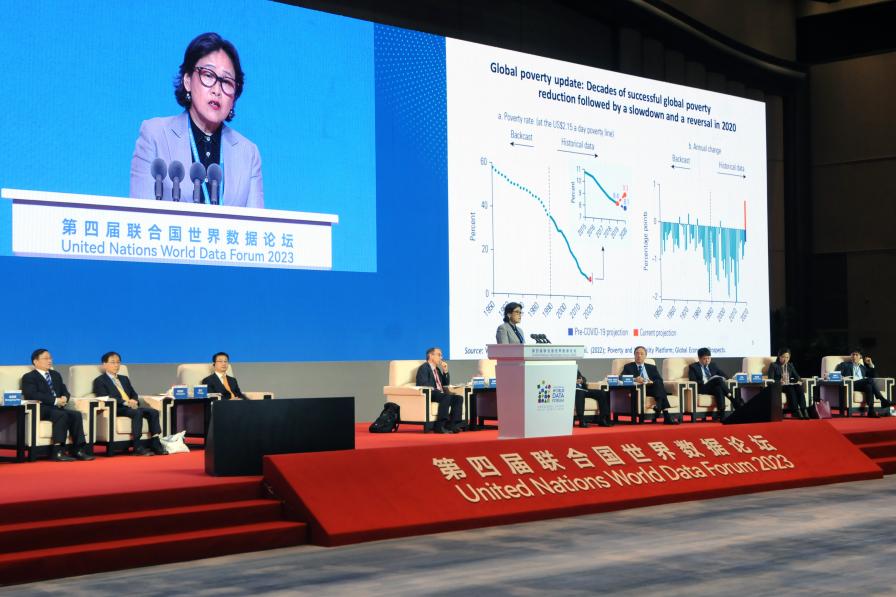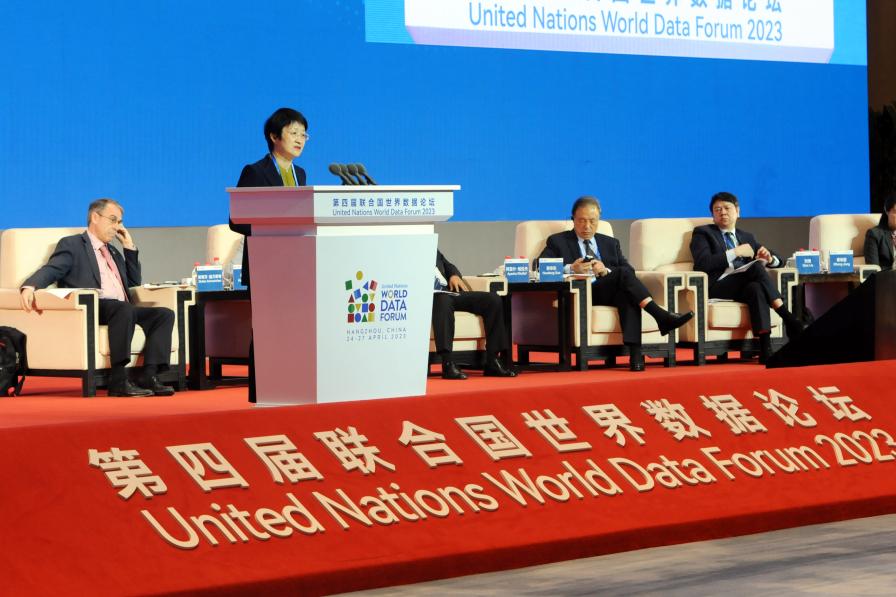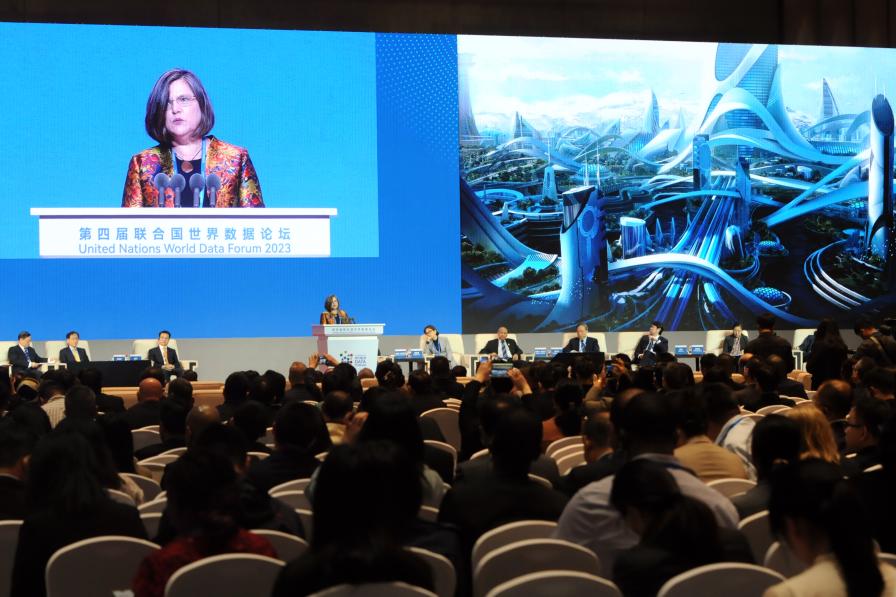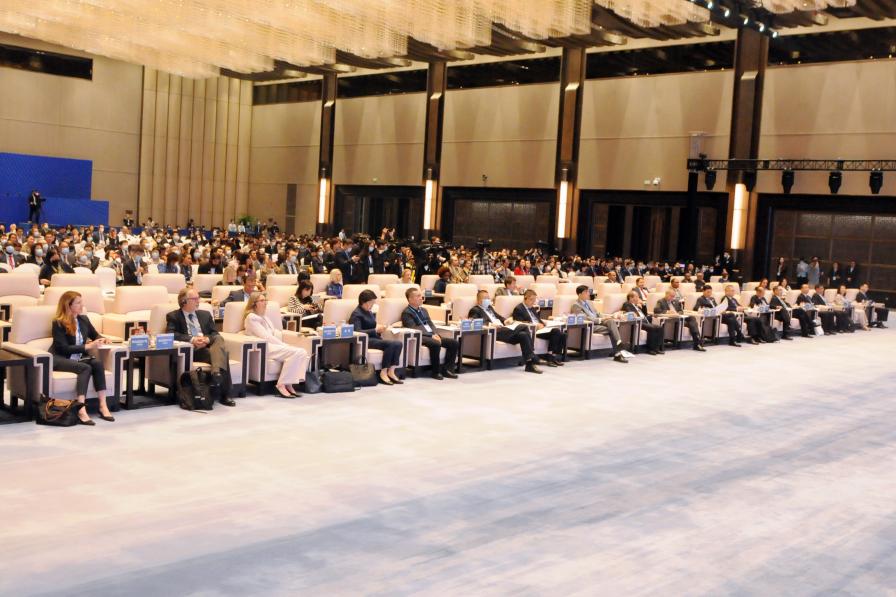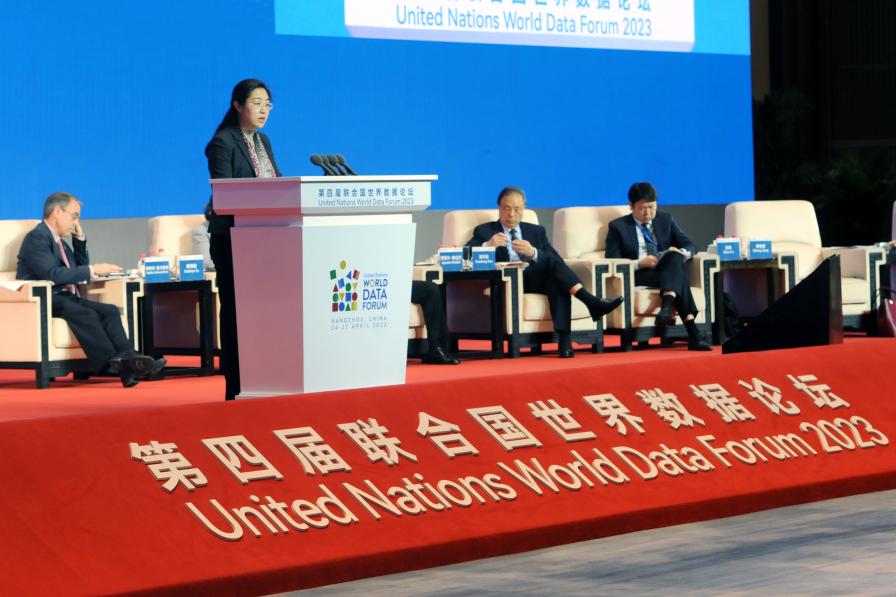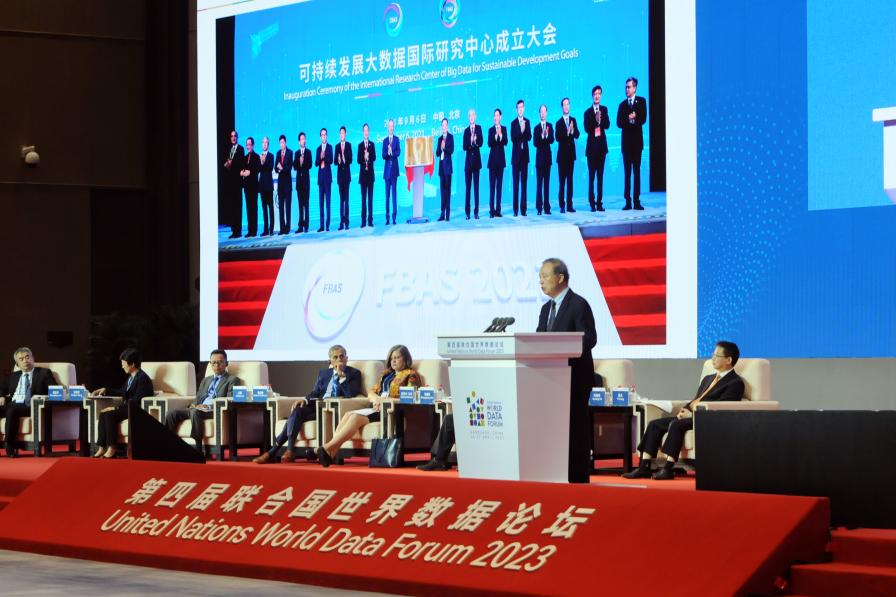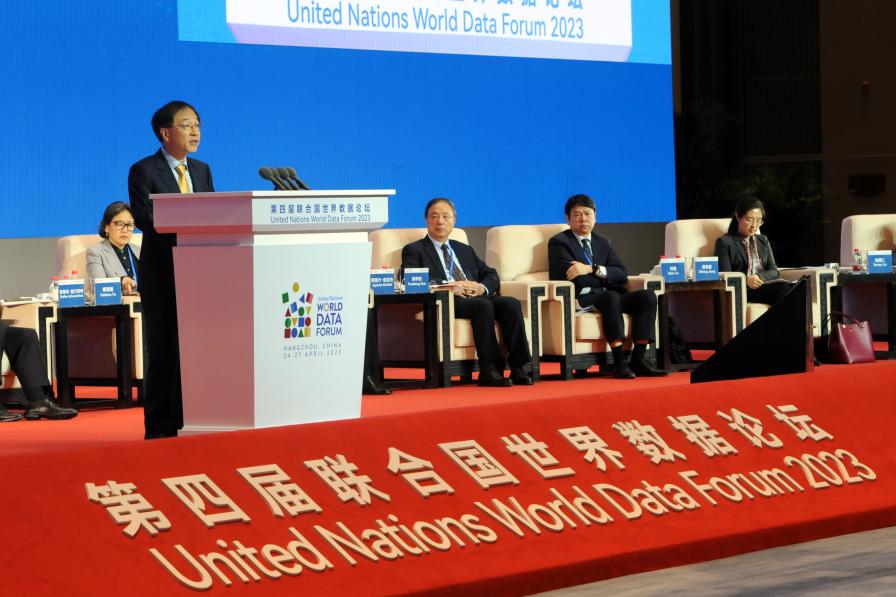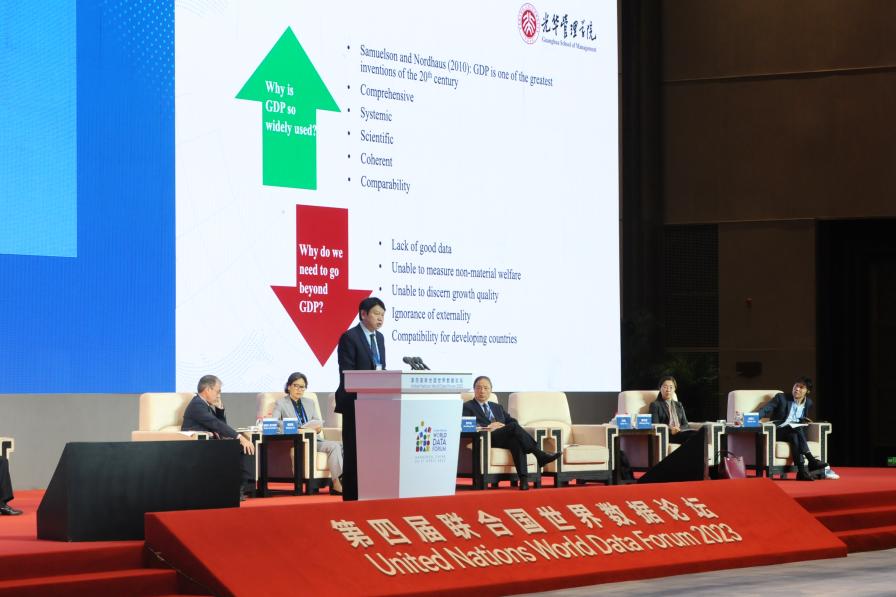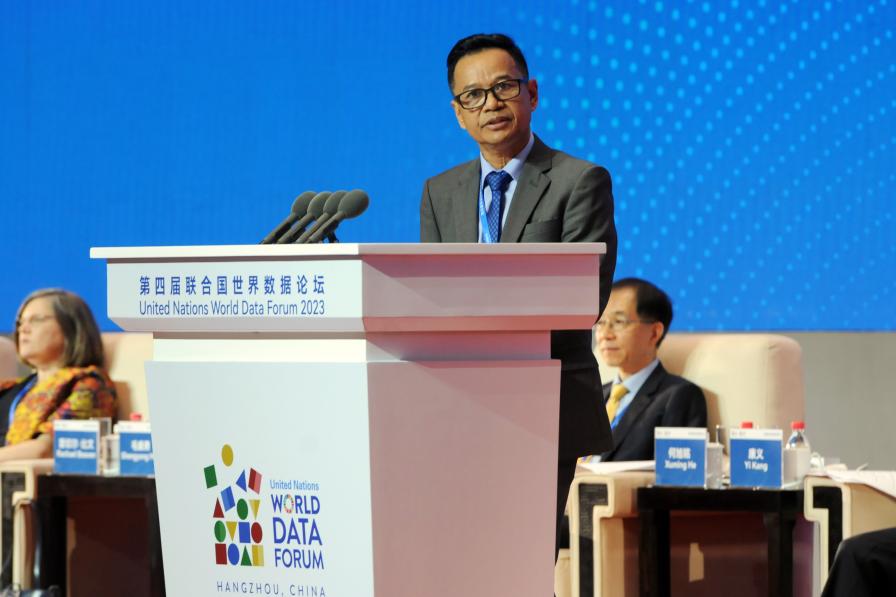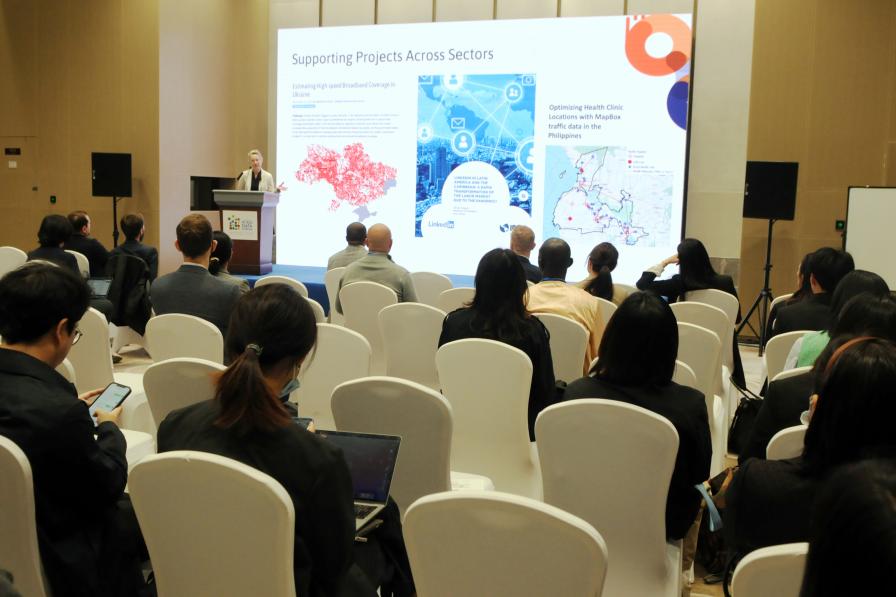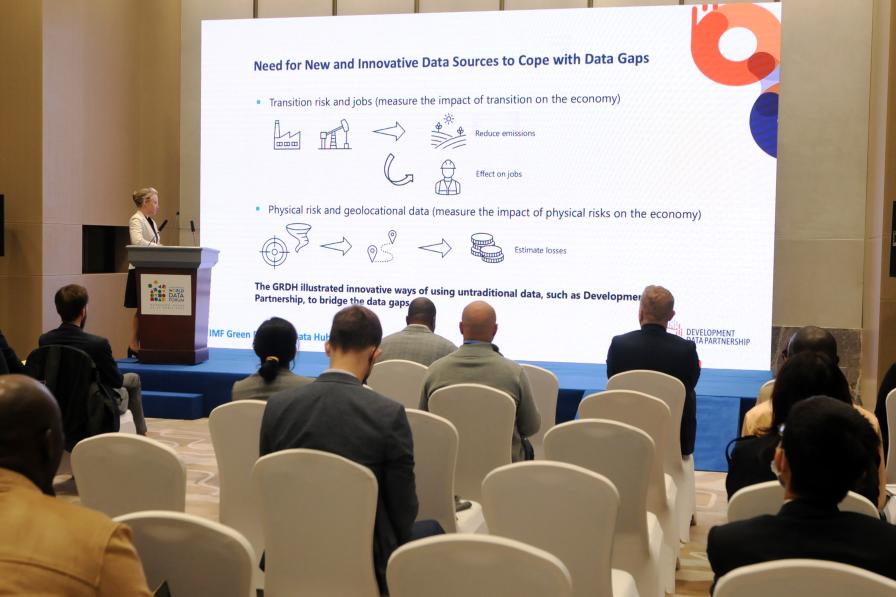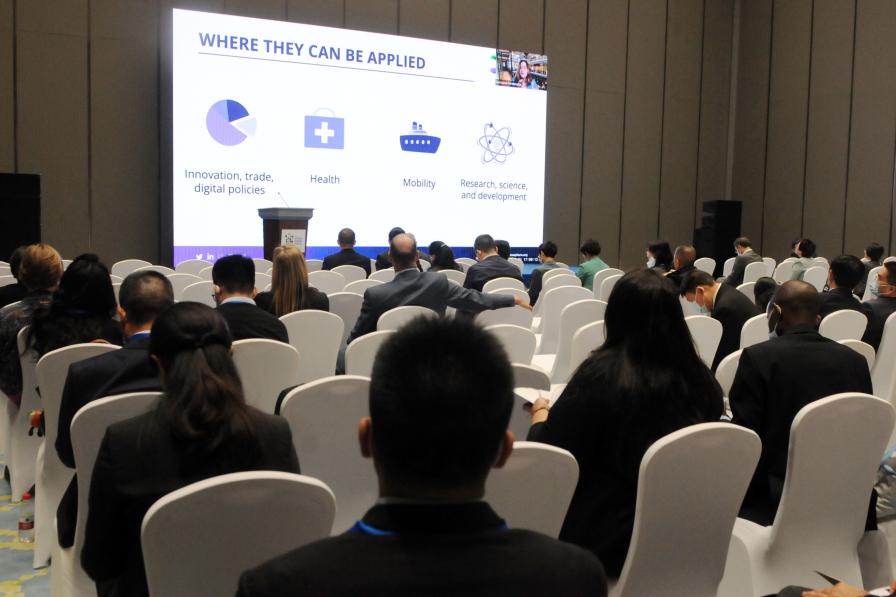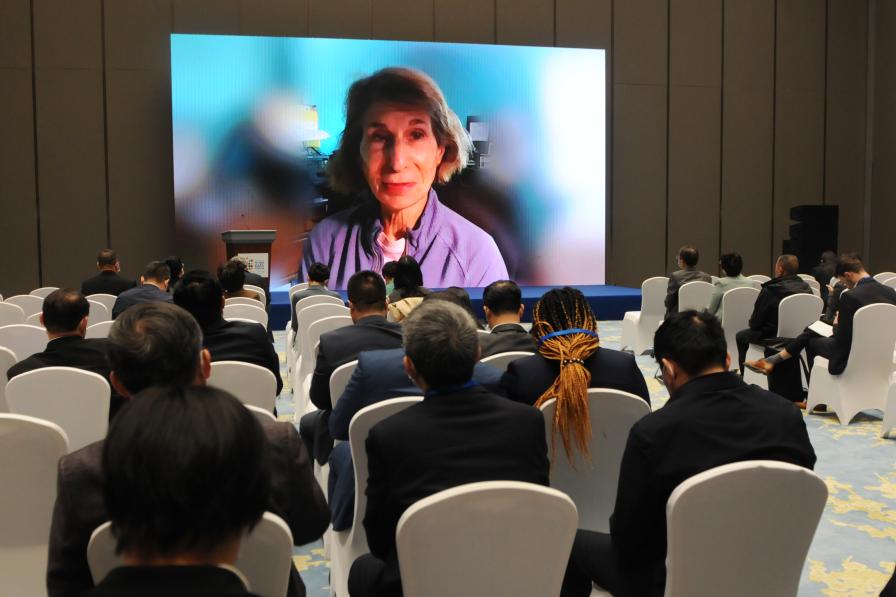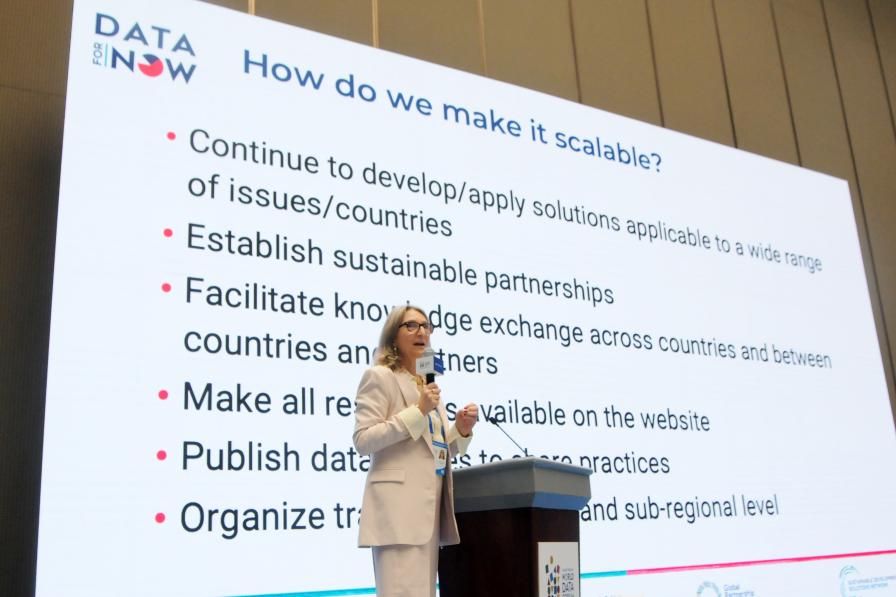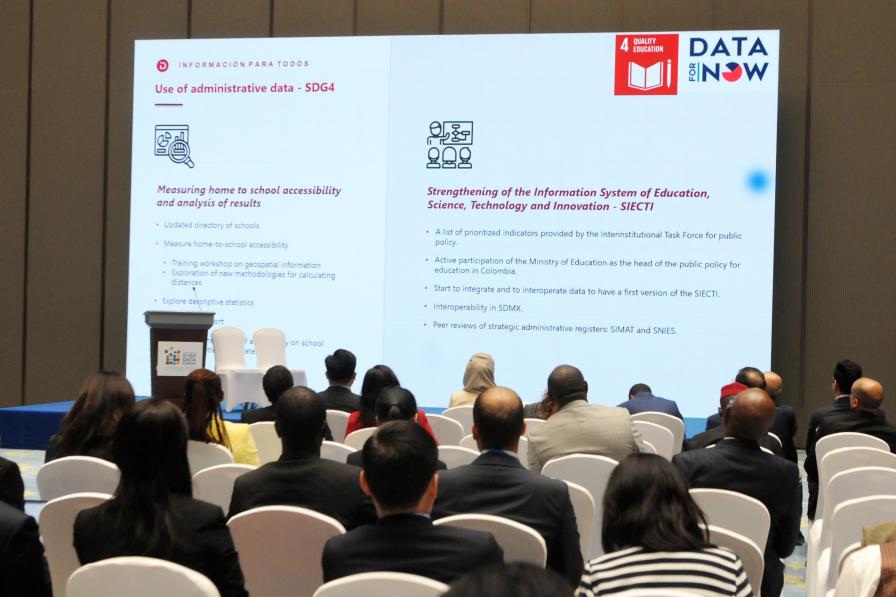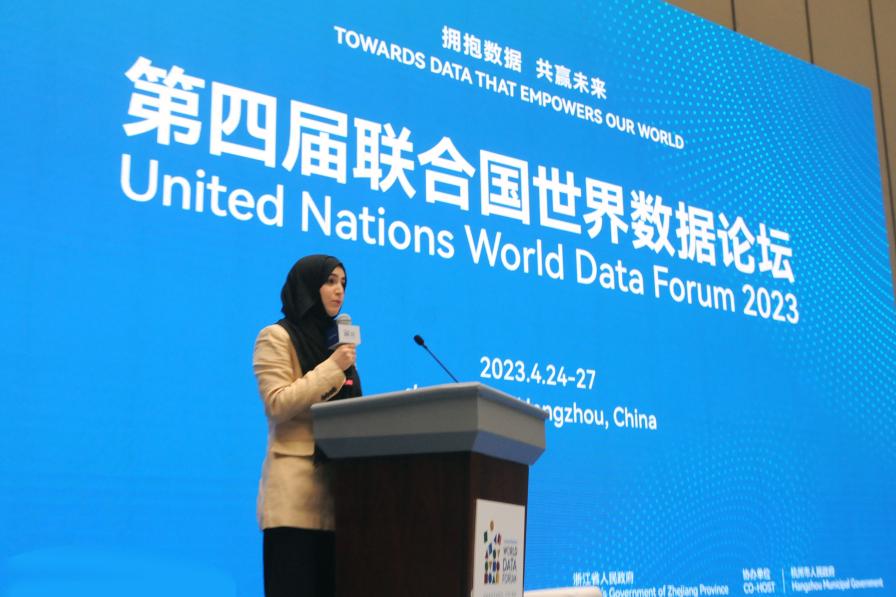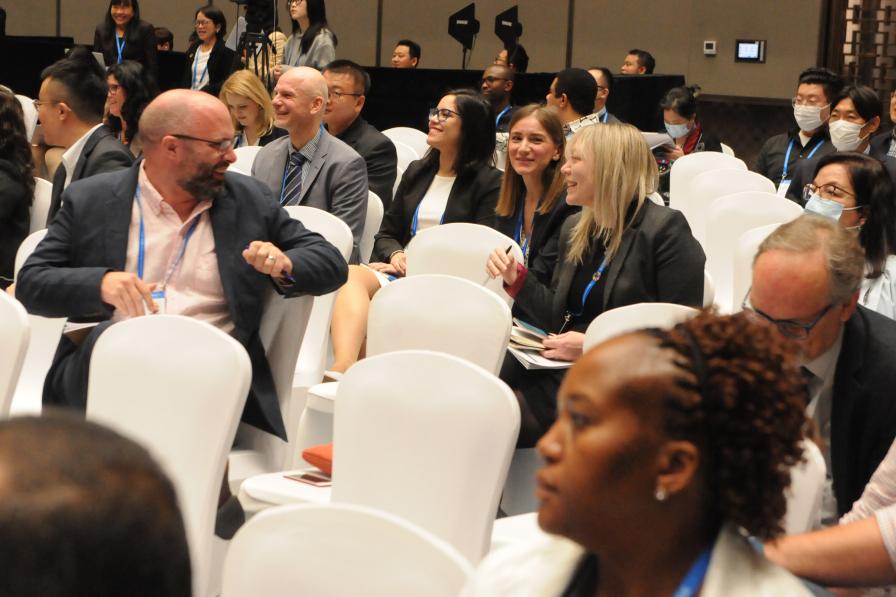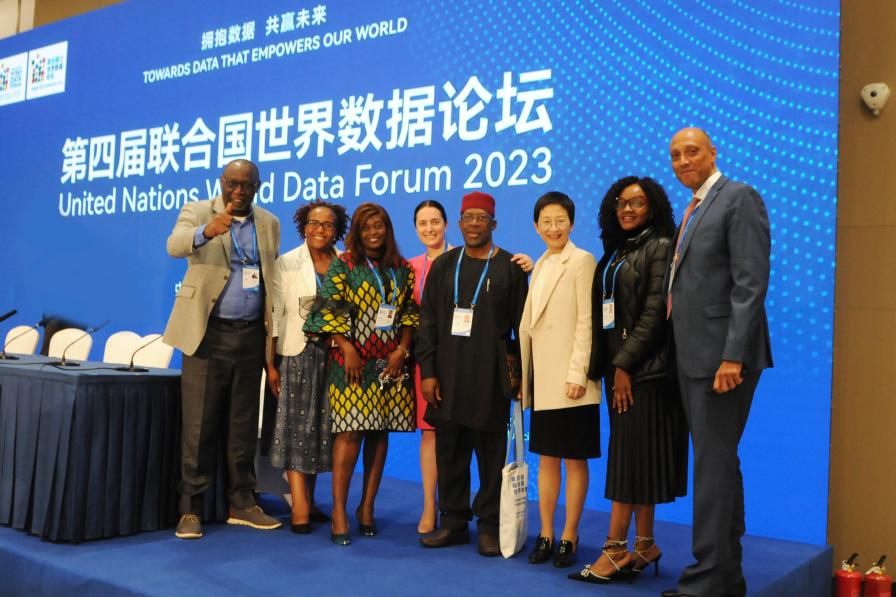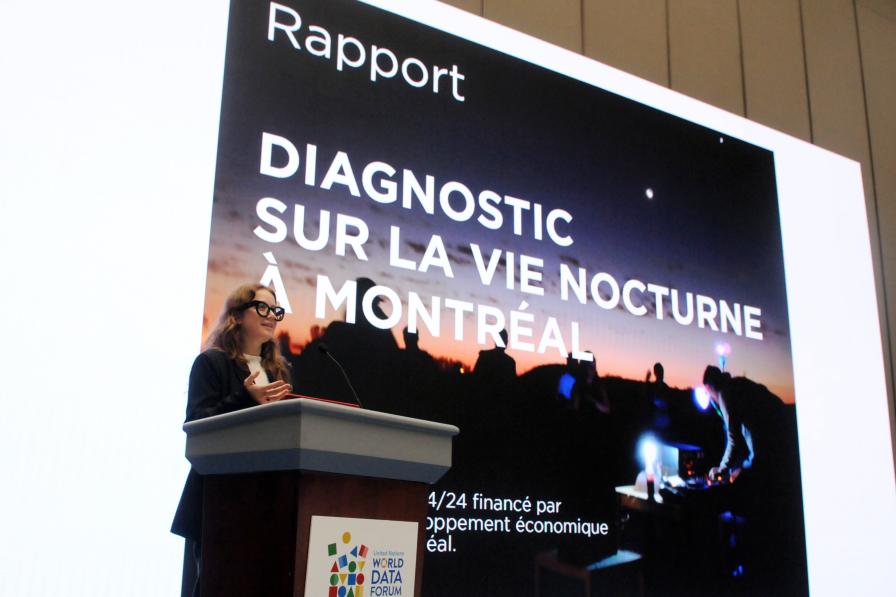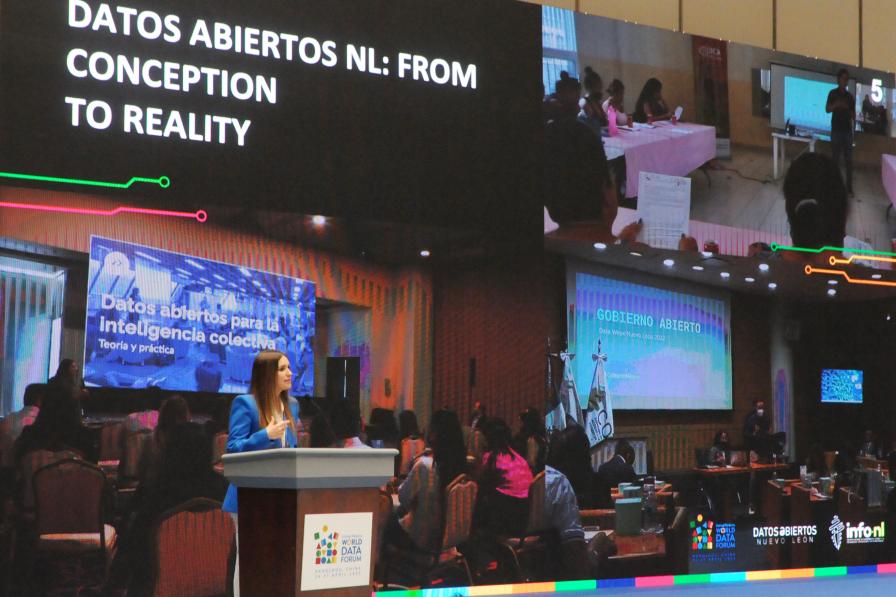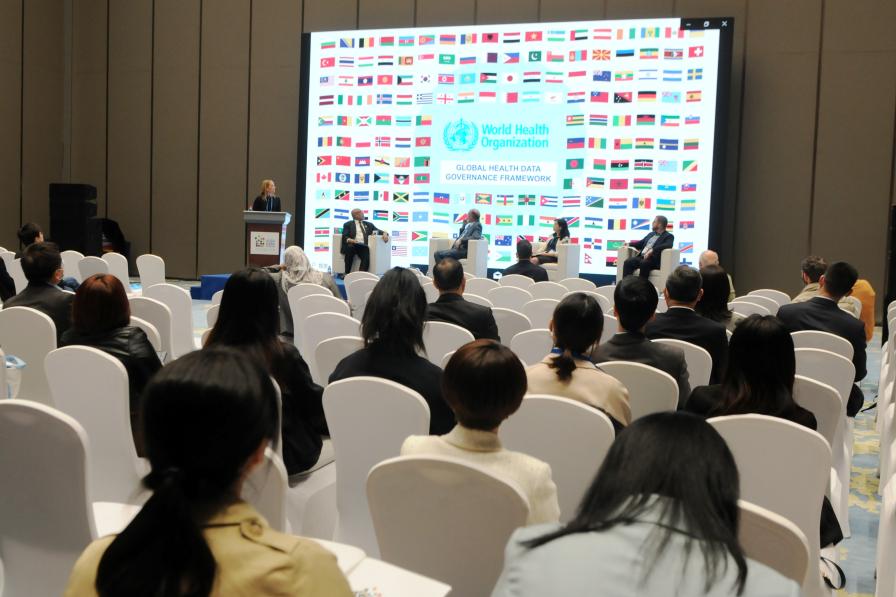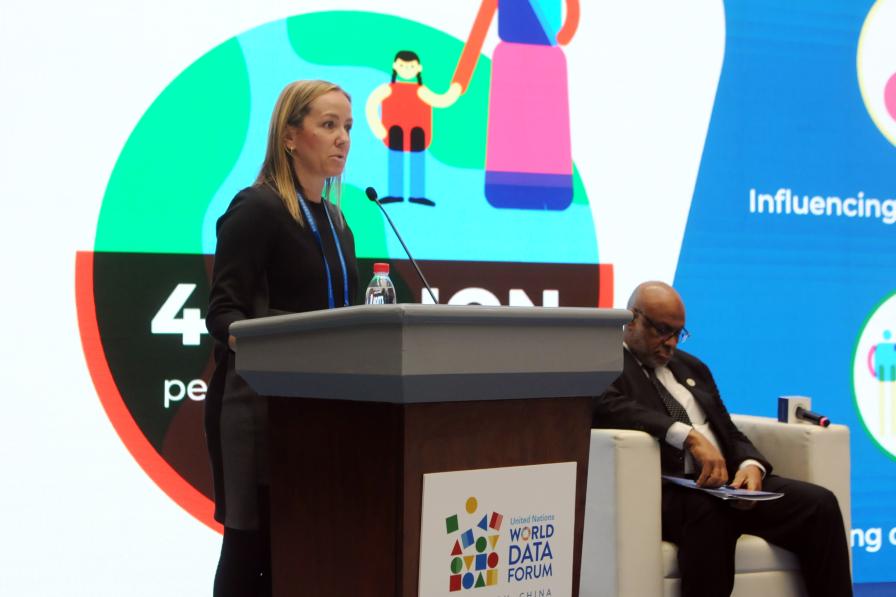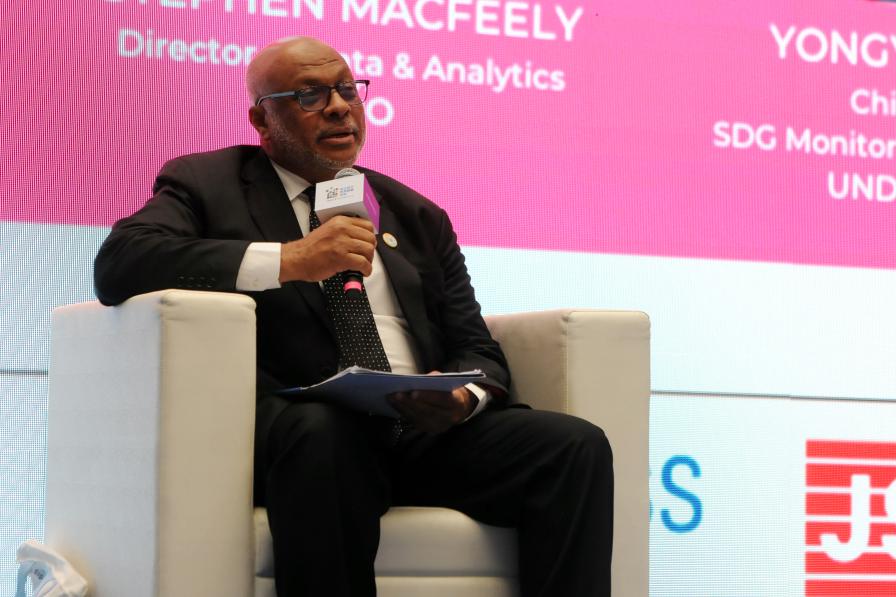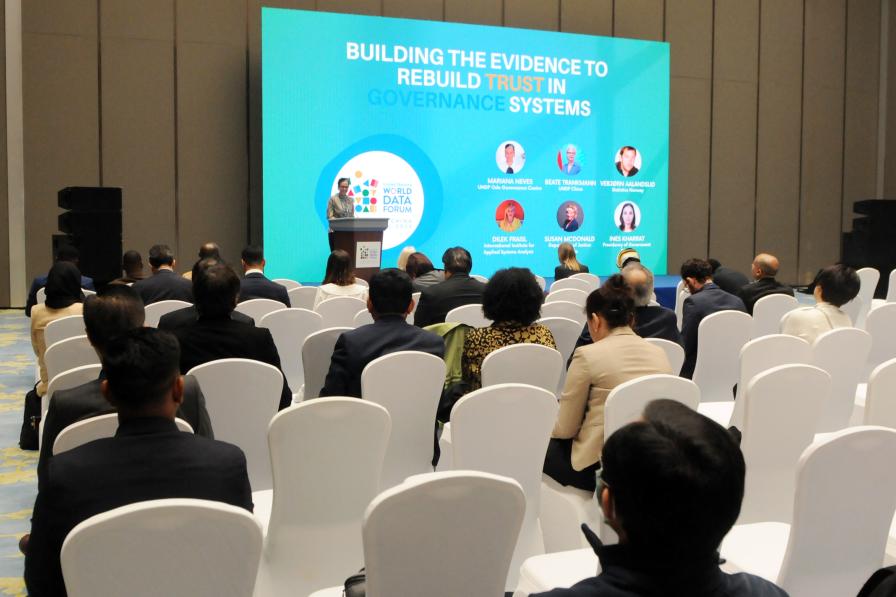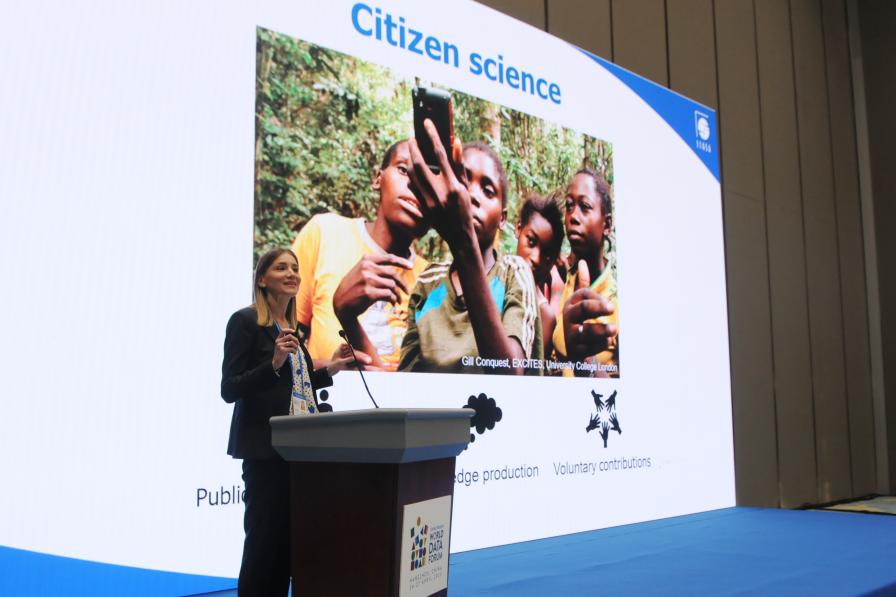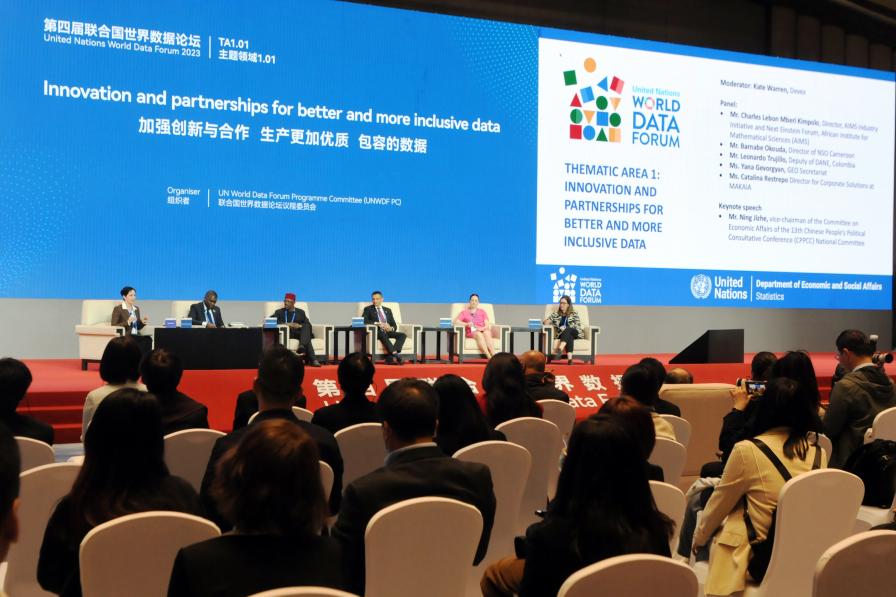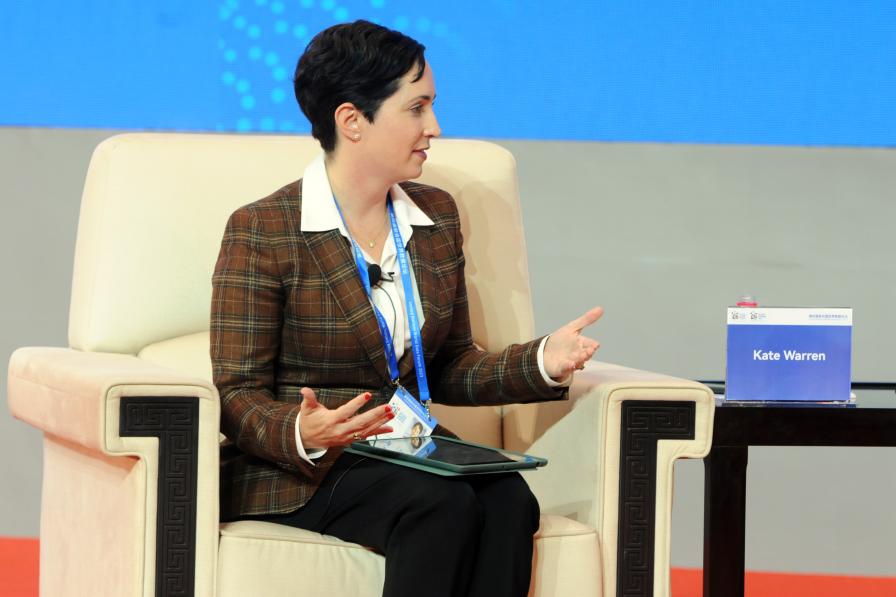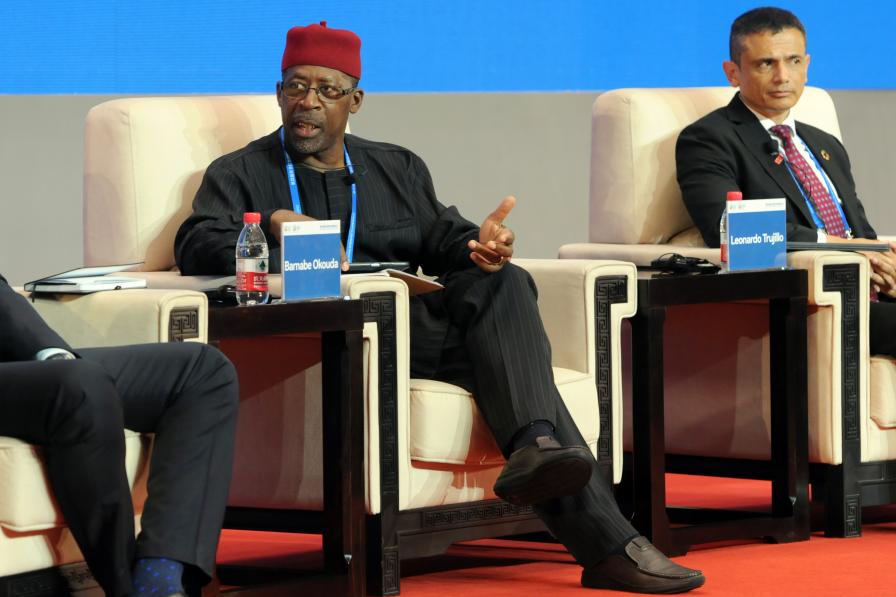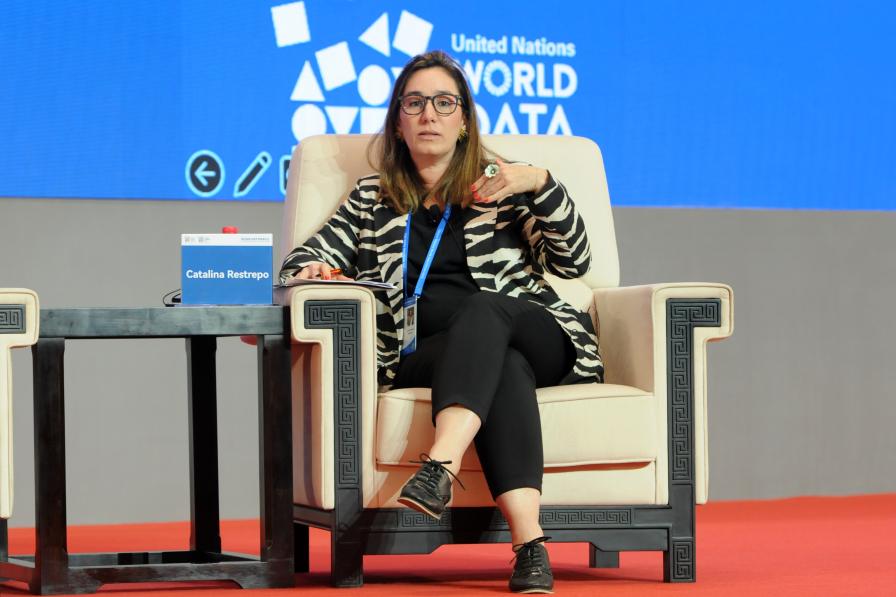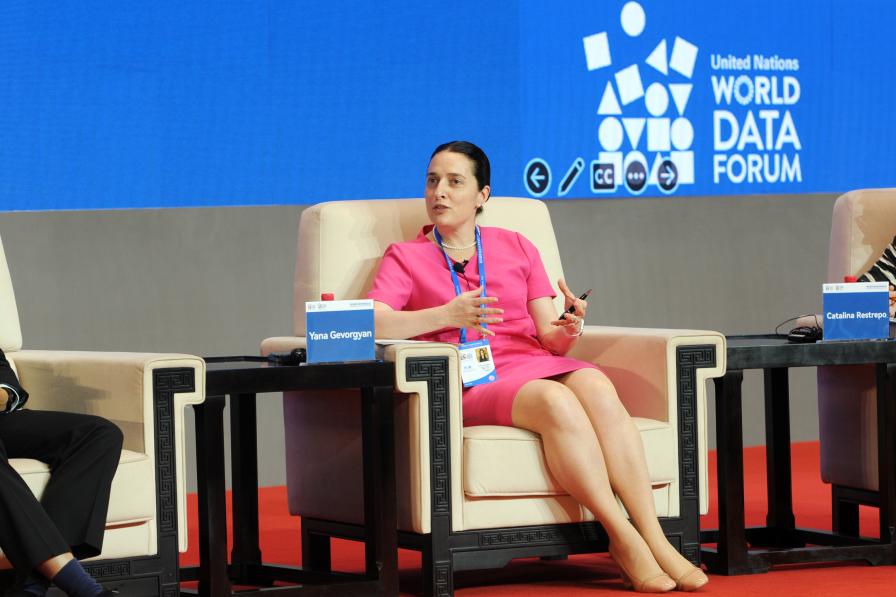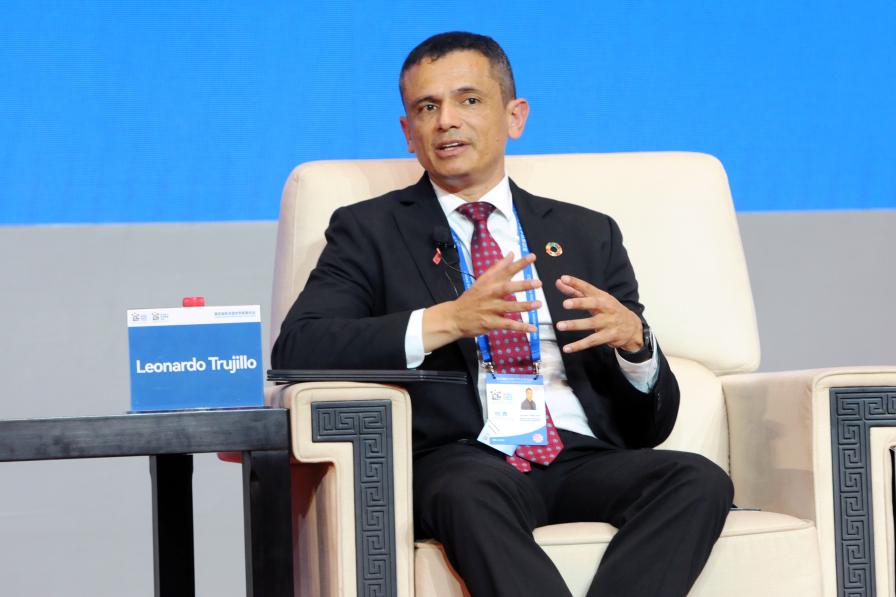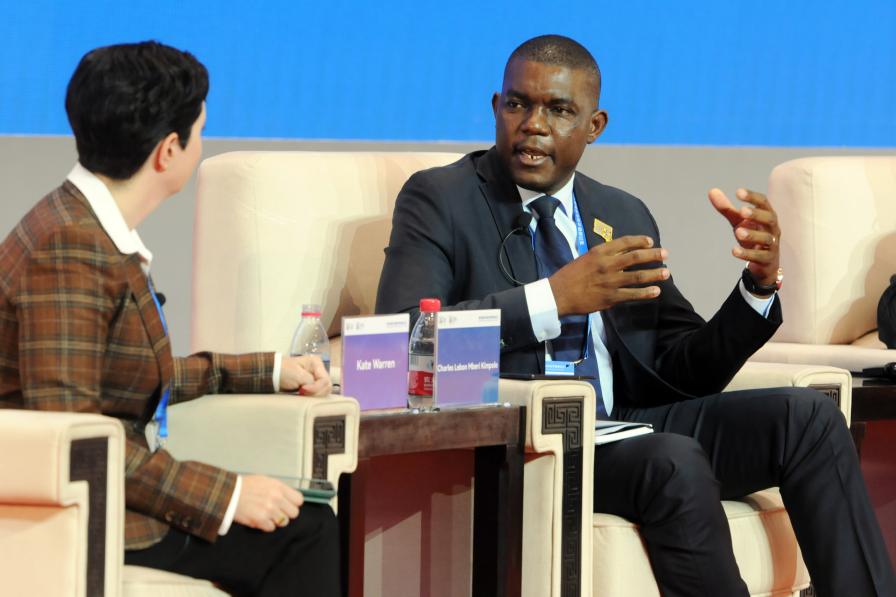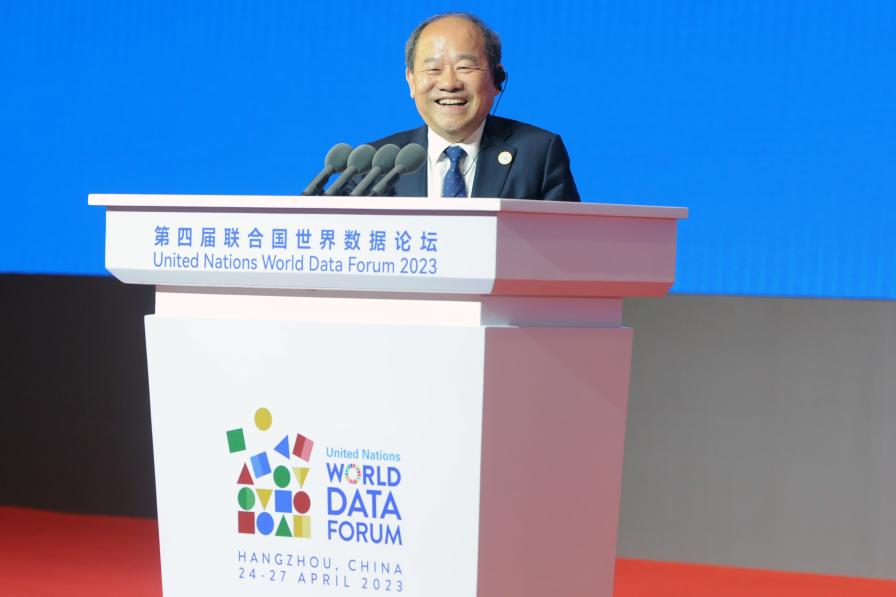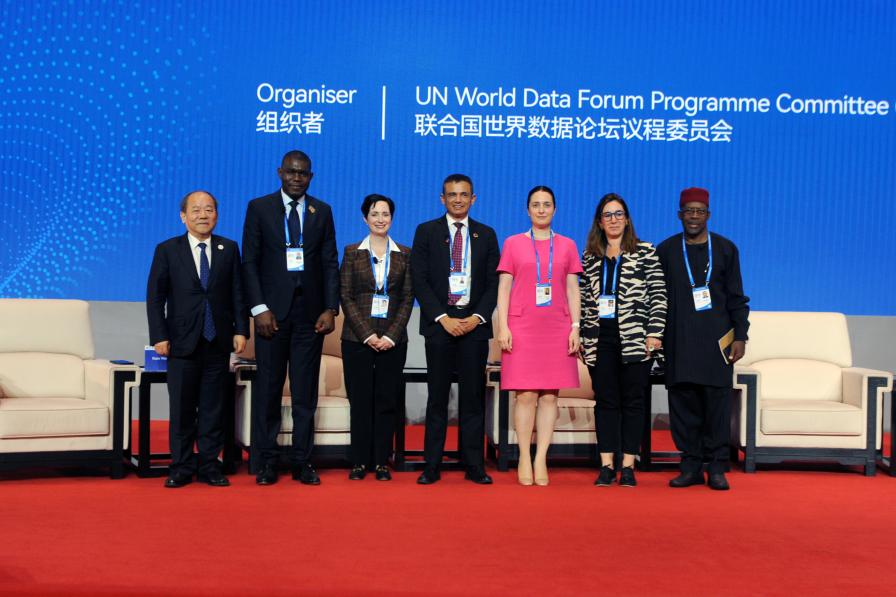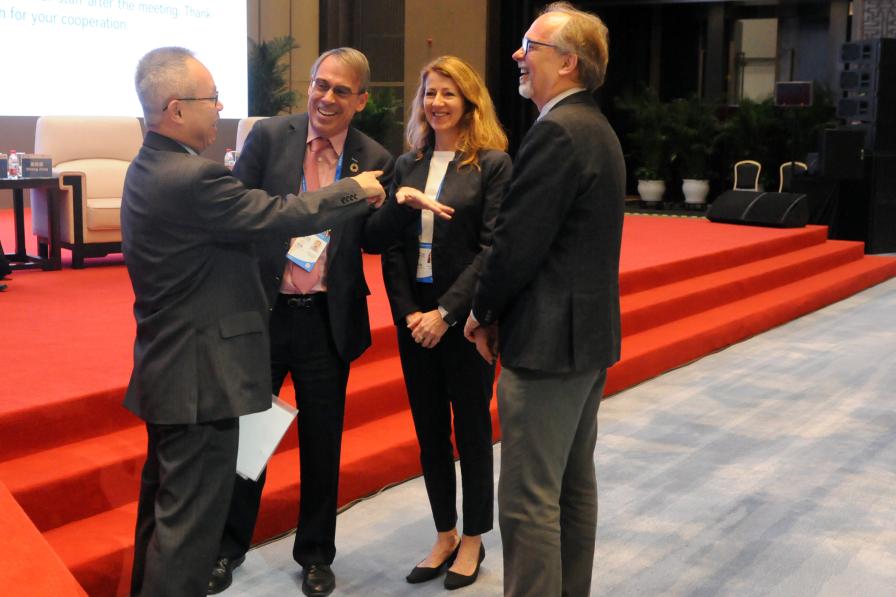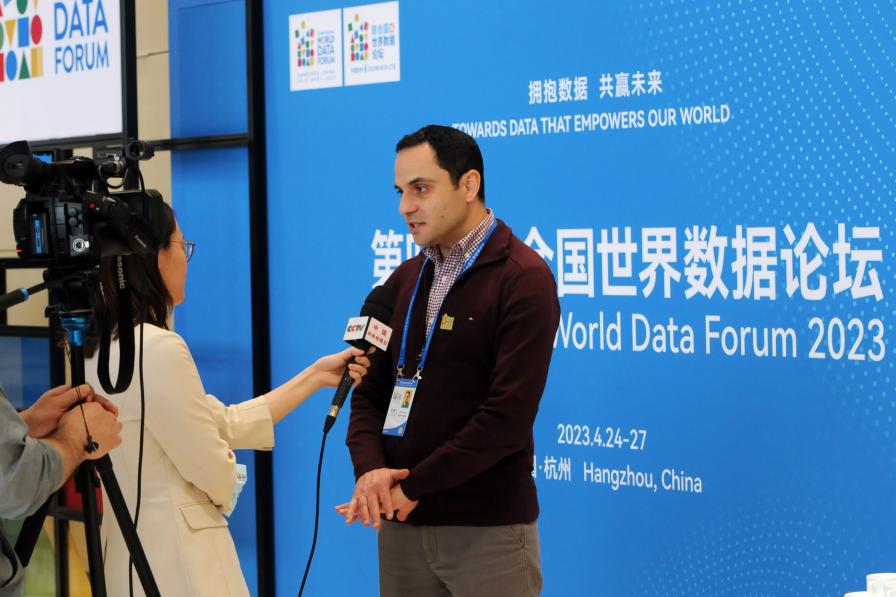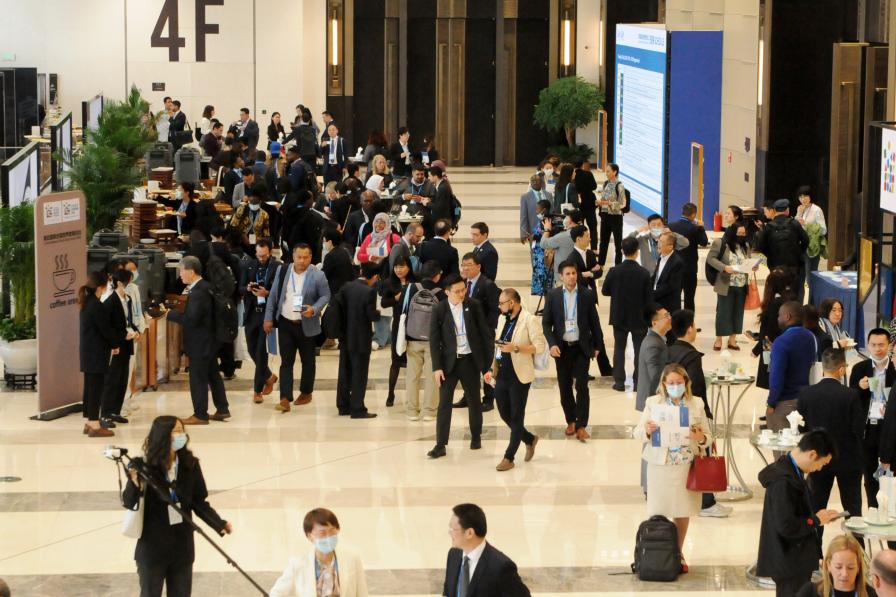Delegates convened on the second day of the Fourth UN World Data Forum (UNWDF 2023), including to explore topics in parallel sessions across four themes: innovation and partnerships for better and more inclusive data; maximizing the use and value of data for better decision making; building trust and ethics in data; and emerging trends and partnerships to develop the data ecosystem. Two high-level plenaries also took place during the day.
Stefan Schweinfest, UN Statistics Division (UNSD), in welcoming remarks, said the Forum provides a place to mingle, build trust, and identify projects for data practitioners, and encouraged participants to tackle data culture including governance and use.
High-level Host Country Plenary Session
This session, organized by the National Bureau of Statistics of China (NBS-China), featured presentations on digital transformations in China and data solutions.
Kang Yi, NBS-China, reported on China’s technological advances, including the use of Artificial Intelligence (AI) and electronic data collection.
Wu Shengfeng, Director General, Zhejiang Provincial Bureau of Statistics, China, discussed cutting edge projects in his province to improve the efficiency of flood protection and disaster management, and to bring law enforcement online.
Liu Tanren, Deputy Manager, SF Technology, reported on his company’s use of Big Data to overcome constraints in parcel delivery services.
Rachael Beaven, UN Economic and Social Commission for Asia and the Pacific (UNESCAP), noted that based on current trajectories, the Asia-Pacific region will achieve the Sustainable Development Goals (SDGs) in 2065.
Xuming He, International Statistical Institute (ISI), reiterated the importance of Big Earth Data and collaborations for monitoring and assessment the SDGs.
Liu Qiao, Peking University, discussed monitoring and evaluation of the SDGs based on a new development philosophy that goes beyond the assessment of GDP.
Parallel Sessions
Throughout the day, delegates participated in over twenty sessions including learning labs, and demonstration sessions. Exhibits were also displayed within the venue.
Insights from the Data For Now Initiative: This session focused on data use and analyses in support of the Data for Now Initiative, which aims to develop capacities to deliver information needed by local and national policy and decision makers to help realize the SDGs.
Innovative ways for increasing timeliness and coverage of SDG indicators: This session focused on practical solutions from the scientific community to foster greater cross-disciplinarity and cross-sectoral collaboration for SDG monitoring and assessment.
New developments in governance of cross-border data flows: This session discussed, among others, promising developments on the role that trade agreements can play in data regulation.
How public-private data collaboration helps governments address crises: This session was dedicated to the emerging practice of combining data sets from public and private sources. It showcased the key role played by companies, such as LinkedIn, Meta and Waze, during the COVID-19 pandemic to address policy and social needs.
Data for the Night: Ethical guidance for data use and sharing in 24-hour cities, Datos Abiertos NL, and Bringing youth to data leadership: These sessions presented three projects, which offered examples of data science for local governance from Los Angeles, Montreal, and the state of Nuevo León, Mexico.
Maximizing the public value of health data whilst protecting individual rights: This session focused on the digitalization of health systems data to improve health care access, build strong and resilient health systems, and accelerate progress to universal health coverage.
Building the evidence to rebuild trust in governance systems: This session explored ways to tackle the current credibility crisis in governance systems around the world, featuring new research on citizen-generated data.
High-level Plenary Session
Innovation and partnerships for better and more inclusive data: This session moderated by Kate Warren, Executive Vice President, Devex, focused on ways to ensure inclusive data ecosystems and the role of public-private partnerships to achieve this goal.
Barnabé Okouda, National Institute of Statistics, Cameroon, said ensuring inclusivity requires partnerships to address gaps in data availability for sustainable development needs.
Catalina Restrepo, MAKAIA, noted the importance of community-based methods and discussed an example in Medellín, Colombia, where communities provided with air quality sensors were able to analyze activities that affect air quality and design ways to mitigate air pollution.
Charles Lebon Mberi Kimpolo, African Institute for Mathematical Sciences (AIMS), said people should not be considered as data points, adding that governments should develop regulatory mechanisms for data privacy and security.
Leonardo Trujillo, Deputy Director, National Administrative Department of Statistics, Colombia, discussed the importance of understanding the cultural identity of Indigenous Peoples in order to design surveys that are inclusive in determining disaggregated data sets.
Yana Gevorgyan, Secretariat Director, Group on Earth Observations (GEO), said national-level partnerships require political will to incentivize and facilitate collaborations, including national digital data strategies that cover areas such as data access, sharing, privacy, and security.
Concluding the session, Ning Jizhe, Vice-Chairman, National Committee of the Chinese People's Political Consultative Conference (CPPCC), urged governments to embrace new data and upgrade internet capacities of statistical departments.
The significance of the words “world, data and forum,” as mentioned in the morning plenary by Stefan Schweinfest, took on importance during the day’s activities. Throughout the day, and across a diverse array of thematic sessions, delegates were able to delve deeper into multiple aspects of the exponential advances underway in data and innovation across the world.
All ENB photos are free to use with attribution. For the UN World Data Forum 2023, please use: Photo by IISD/ENB | Diego Noguera
To receive free coverage of global environmental events delivered to your inbox, subscribe to the ENB Update newsletter.
Innovative Ways for Increasing Timeliness and Coverage of SDG Indicators
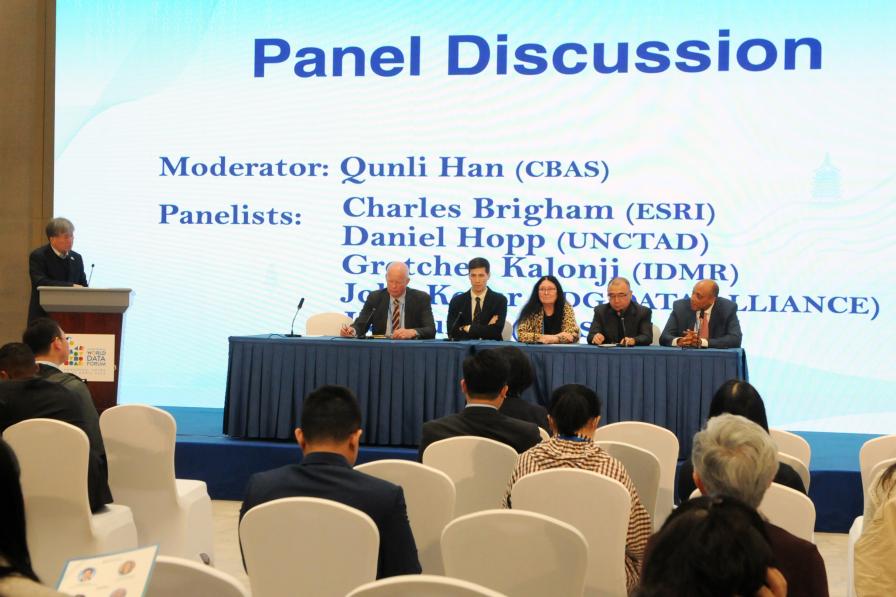
(L-R) Moderator Qunli Han, Executive Director, Integrated Research on Disaster Risk (IRDR); Daniel Hopp, UN Conference on Trade and Development (UNCTAD); Gretchen Kalonji, Sichuan University; Jianhui Li, Vice-President, Committee on Data (CODATA) of the International Science Council; and Charles Brigham, Esri
